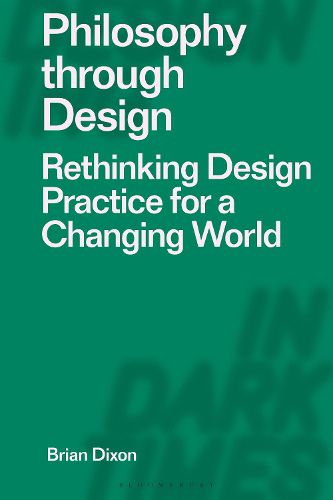Readings Newsletter
Become a Readings Member to make your shopping experience even easier.
Sign in or sign up for free!
You’re not far away from qualifying for FREE standard shipping within Australia
You’ve qualified for FREE standard shipping within Australia
The cart is loading…






Philosophy through Design proposes a new approach to design practice grounded in a philosophical reflection in and on action, with alignments being drawn to the democratic pragmatism of John Dewey and Jane Addams as well as key contemporary philosophic perspectives. Throughout, Dixon stresses the need for designers to engage critically, ethically and reflectively as they seek to meet the complex challenges of the 21st century. The key argument is that design practice can itself become a mode of philosophical inquiry, supporting designers' efforts to experiment, reflect and act responsibly and make and remake the ever-evolving future as potential 'designer philosophers'.
$9.00 standard shipping within Australia
FREE standard shipping within Australia for orders over $100.00
Express & International shipping calculated at checkout
Stock availability can be subject to change without notice. We recommend calling the shop or contacting our online team to check availability of low stock items. Please see our Shopping Online page for more details.
Philosophy through Design proposes a new approach to design practice grounded in a philosophical reflection in and on action, with alignments being drawn to the democratic pragmatism of John Dewey and Jane Addams as well as key contemporary philosophic perspectives. Throughout, Dixon stresses the need for designers to engage critically, ethically and reflectively as they seek to meet the complex challenges of the 21st century. The key argument is that design practice can itself become a mode of philosophical inquiry, supporting designers' efforts to experiment, reflect and act responsibly and make and remake the ever-evolving future as potential 'designer philosophers'.